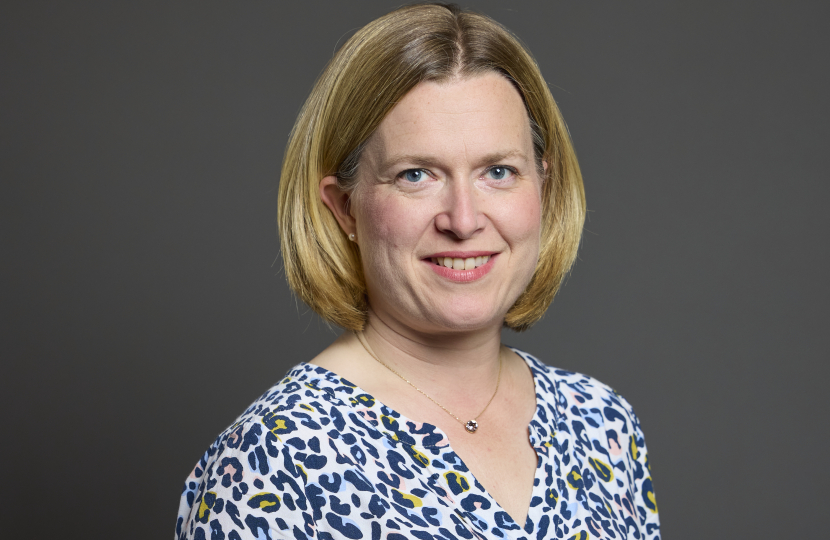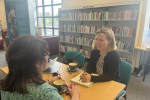
I have always had a deep sense that I am in politics, in large part, to speak up for the marginalized and to be a voice for the voiceless.
As a result, of all the reasons why I oppose the Terminally Ill Adults (End of Life) Bill which we debated on Friday 29th November, I focused on the impact – unintended or otherwise – on the most vulnerable in society.
I am speaking about those who already face marginalisation - the disabled, the poor and the elderly – many of whom, having watched assisted dying mission creep in countries like Canada and Belgium, are terrified about what this Bill will mean for them.
I cannot in all good conscience support this Bill.
Those in favour speak emotionally of those who face physical pain and suffering at the end of their lives, and we do need to be doing more to address the state of palliative care in the UK to further improve access to treatment of those at the end of life.
Indeed, Denmark’s recent inquiry into assisted dying concluded that a change in legislation to legalise would, ‘be in conflict with palliative care’. It went further and said assisted dying should not be considered, ‘as long as we as a society have not exhausted the possibilities for relief.’
That is why I join the calls by MPs from all parties for a Palliative Care Commission to explore what needs to be improved and how. It seems we are not alone. Recent polling has shown that 70% of the population want to see this step taken before we look to legislate for assisted dying. Public opinion is shifting.
It seems clear to me that this Bill poses an inherent risk to the elderly, those with mental health conditions and the disabled – some of the most vulnerable and marginalized in society. I am not persuaded by the apparent procedural safeguards contained in the Bill, such as discussions with doctors and appearances before the court. Neither am I reassured that the current Bill will be the end of the story.
Although there are some who believe this Bill draws a line in the sand that will not be crossed – that we will not experience a slippery slope to allowing those with mental illness, children and the homeless opt for assisted dying as takes place in countries like Canada and Belgium, as actress and disability rights campaigner, Liz Carr says in her powerful BBC documentary, Better off Dead, ‘sand shifts’…
Decisions to end life are complex and not simply procedural; rather, they take place in the context of individuals’ daily lives.
The context where 1 in 6 older people globally face elder abuse.
Where 47% of those who have died in Oregon, USA have cited being a burden as their reason why.
Where 17% of those who died in 2022 in Canada cited isolation or loneliness as a factor in their decision making.
Closer to home, Age UK reports that 1.4 million older people in the UK are often lonely.
Where according to Hospice UK, 90,000 of our citizens die in poverty every year, that is 247 people daily, who have faced the financial impact of a terminal illness.
One where, as Disability Rights UK have observed, the Government sadly does not have a track record of protecting the vulnerable and disabled and that this Bill poses a danger to disabled people.
Where the British Geriatric Society says many of its members are “not confident that effective legal safeguards could be developed to protect older people from unwarranted harms.”
And where palliative care experts like Katharine Sleeman, have highlighted how no assisted dying law can be 100% safe, even with safeguards. That there will be those who slip through the net – likely the most vulnerable. And how we have to ask ourselves what margin of error we are prepared to accept. How many vulnerable men and women, arguably being let down by society, are we prepared to die through assisted dying to enable a few to have choice to control the end of their life.
It is also worth noting that of all the cases shared with me by my constituents, the vast majority are not covered by the Bill before Parliament. This concerns me as I believe there will be a push to extend the law if passed. Furthermore, within the Bill are startling clauses that means if a doctor does not agree with assisted dying themselves, they must introduce a patient to someone who does. What choice is this? And an assisted death can take place without any requirement to inform a next of kin, friend or family member. Neither is there a right to appeal. How do we mitigate against someone who feels a burden going ahead with a death that could be avoided if they allowed those around them to help.
It is my belief that Parliament has a duty to protect the vulnerable. I believe the only way to do that is by voting against this Bill.






